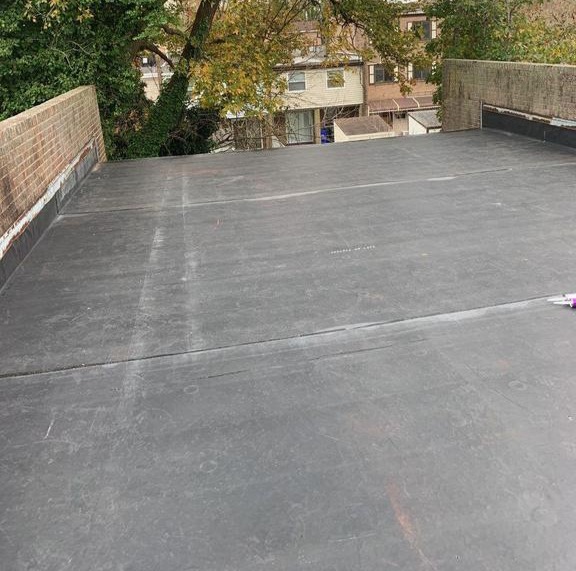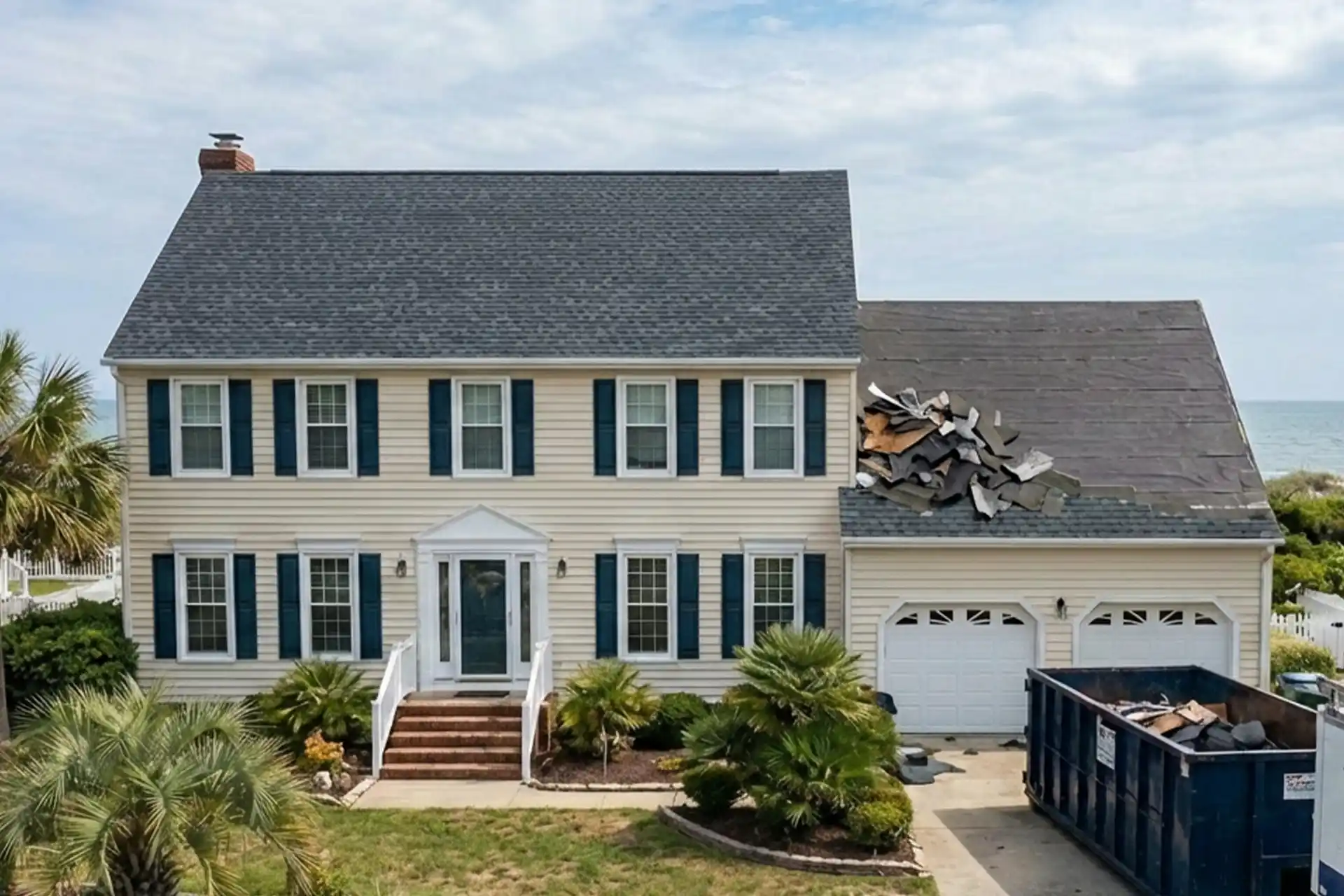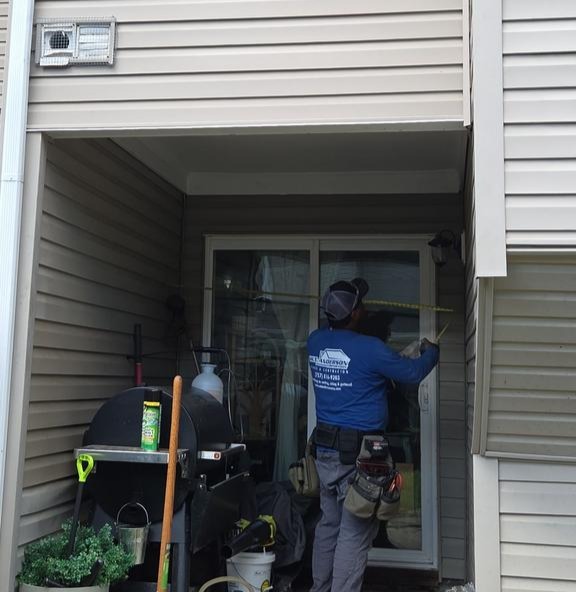The difference between residential and commercial roofing (and why it matters)
Use our quick contact form to get in touch with our team. We will respond shortly.

When most people think of roofing, they picture the sloped, shingle-covered tops of homes. But commercial roofing is a whole different world. Whether you’re a homeowner or a business owner in Virginia Beach, understanding the differences between residential and commercial roofing helps ensure you choose the right contractor and materials for your property.
As a trusted roofing company in Virginia Beach, WT Anderson serves both residential and commercial clients and knows that each requires a specialized approach. Here's what sets them apart—and why it matters.
Roofing design and structure
The most obvious difference between residential and commercial roofs is their design.
Residential roofs usually have steep slopes, visible from the ground, and are designed to be visually appealing. They often feature:
- Asphalt shingles
- Gable or hip shapes
- Dormers and skylights
Commercial roofs, on the other hand, are usually flat or low-slope and designed for function over form. They may include:
- HVAC units or solar panels on the surface
- Membrane or metal roofing
- Larger square footage requiring expansion joints
These design differences affect everything from drainage to materials to installation time.
Materials used in each type
Because of their design and purpose, commercial and residential roofs use different types of materials:
Residential roofing materials:
- Asphalt shingles (most common)
- Metal panels
- Tile or slate (less common)
Commercial roofing materials:
- TPO (thermoplastic polyolefin)
- EPDM (rubber membrane)
- Modified bitumen
- Metal (for large warehouses or industrial buildings)
The choice of material impacts not only aesthetics and durability but also installation complexity and cost.
Learn more about our roofing services
Installation and maintenance
Installation of a commercial roof is often more complex than residential. Larger surface areas, additional layers, and specialized materials require skilled commercial roofing crews. Additionally, commercial roofing systems may need to comply with stricter building codes or accommodate equipment like exhaust systems and rooftop units.
Maintenance also differs:
Residential roof maintenance includes:
- Annual inspections
- Gutter cleaning
- Occasional shingle repair or replacement
Commercial roof maintenance involves:
- Regular surface inspections (especially after storms)
- Sealant and flashing upkeep
- Drainage system checks
Cost differences
Commercial roofs typically cost more upfront due to size and materials, but they also have different life expectancies. A well-maintained commercial roof can last 20–30 years, while residential asphalt shingles typically last 15–25 years.
However, improper installation or skipped maintenance in either type can lead to expensive repairs down the road.
Why it matters for property owners
Knowing the difference helps you choose the right contractor. A contractor who primarily installs residential roofs may not have the experience needed to handle large-scale flat roofing projects with the precision and materials required.
Likewise, if you’re a homeowner, you want someone who understands the aesthetic details and slope-specific needs of residential roofs.
Choosing the right roofing partner
WT Anderson has decades of experience serving both homeowners and business owners throughout the Virginia Beach area. Whether you need shingle repair or a new commercial roof membrane, our team has the knowledge and certifications to handle it properly.
Schedule a free on-site roof evaluation
Sources:
- NRCA: Residential vs. Commercial Roofing
- GAF: Roofing System Types Explained





